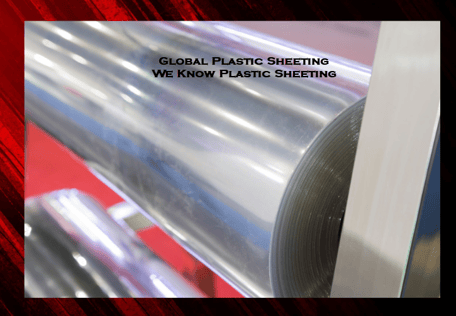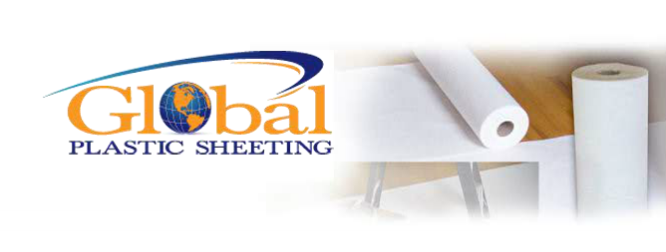Sheeting Secrets: Unveiling the Truth About Thickness for Every Task

Plastic sheeting is a versatile material that finds its application in various industries such as construction, agriculture, packaging, DIY, and even healthcare. Its widespread usage can be attributed to its durability, flexibility, and cost-effectiveness. However, one essential factor that greatly affects its performance is its thickness.
How is Plastic Sheeting Thickness Measured?
The thickness of plastic sheeting is measured in mils, with one mil being equal to 1/1000th of an inch. It is important to choose the right thickness for your specific application to ensure optimal performance and durability.
Factors to Consider When Choosing Plastic Sheeting Thickness
Strength and Durability: Firstly, the thickness of plastic sheeting determines its strength and durability. Thicker sheets are generally more robust and resistant to tearing, punctures, and impacts. This makes them suitable for heavy-duty applications where the sheeting needs to withstand extreme conditions, such as construction sites or industrial environments.
Flexibility: Secondly, the thickness of plastic sheeting affects its flexibility. Thinner sheets are more flexible and easier to manipulate, making them ideal for applications that require bending or folding, such as packaging or covering irregular surfaces. On the other hand, thicker sheets may be less flexible but offer greater rigidity and stability, making them suitable for applications that require structural support or load-bearing capacity.
Furthermore, the thickness of plastic sheeting also determines its resistance to chemicals, UV radiation, and other environmental factors. Thicker sheets generally have better resistance to chemical corrosion and degradation from exposure to sunlight. This makes them suitable for outdoor applications where the sheeting is exposed to harsh weather conditions or corrosive
Environmental Factors: Evaluate the environmental conditions that the plastic sheeting will be exposed to. Thicker sheets generally have better resistance to chemicals, UV radiation, and other environmental factors. This makes them suitable for outdoor applications where the sheeting is exposed to harsh weather conditions or corrosive substances.
Cost-effectiveness: Consider the cost implications of the thickness of the plastic sheeting. Thicker sheets are generally more expensive than thinner sheets. Evaluate your budget and determine if the additional durability and performance of thicker sheets are worth the extra cost.
Application-specific requirements: Each application has its own specific requirements. Consult with experts or manufacturers to determine the recommended thickness for your specific application.
Intended Use: Different tasks demand varying thicknesses. For instance, 2 mil sheets are apt for light-duty activities like furniture coverage during painting, while 6 mil sheets excel in heavier-duty applications.
Coverage Area: Larger areas benefit from thicker plastic sheeting to ensure resilience against punctures and tears.
Types of Plastic Sheeting by Thickness:
- 2 Mil Plastic Sheeting:Ideal for light tasks like painting and dust protection.
- 3 Mil Plastic Sheeting:Suited for moderate protection in short term construction and DIY projects.
- 4 Mil Plastic Sheeting:Offers enhanced durability for temporary weather protection, concrete curing and drop cloths.
- 6 Mil Plastic Sheeting:Perfect for applications like vapor barriers and crawl space encapsulation. There are many factors to consider where 6 mil is NOT suitable for a crawl space. Learn more here.
Determining Thickness:
- Comparison by Mil Value:To discern the thickness disparity, compare mil values. A higher mil value denotes a thicker plastic sheet.
Conversion from Mil to Inches:
Formula:To convert mil thickness to inches, divide the mil value by 1000. For instance, a 6 mil plastic sheet equates to 0.006 inches (6 ÷ 1000).
Frequently Asked Questions (FAQ) Regarding Plastic Sheeting
Q: What factors should I consider when choosing the thickness of plastic sheeting?
A: When choosing the thickness of plastic sheeting, factors such as the specific application, desired durability and strength, flexibility and versatility requirements, cost considerations, and environmental factors should be taken into account.
Q: How does the thickness of plastic sheeting affect its performance and durability?
A: The thickness of plastic sheeting directly impacts its performance and durability. Thicker sheeting offers increased strength and is suitable for heavy-duty applications, while thinner sheeting provides greater flexibility and versatility for easier handling.
Q: Does the thickness of plastic sheeting affect its cost?
A: Yes, the thickness of plastic sheeting can affect its cost. Thicker sheeting tends to be more expensive, so it's important to balance the desired performance with budget constraints when choosing the appropriate thickness.
Q: Are there any environmental factors to consider when selecting the thickness of plastic sheeting?
A: Yes, environmental factors such as temperature variations and exposure to UV radiation should be considered. It's important to choose a thickness that can withstand the specific environmental conditions the plastic sheeting will be exposed to for optimal performance and longevity.
What is a “Mil” when referring to Plastic Sheeting Thickness?
The term "mil" is a unit of measurement commonly used in the context of plastic sheeting thickness. One mil is equivalent to one-thousandth of an inch (0.001 inches or 0.0254 millimeters). In the context of plastic sheeting, the mil measurement is used to indicate the thickness or gauge of the material. For example, a plastic sheeting labeled as "6 mil" means that it has a thickness of 0.006 inches.
The mil measurement is crucial when selecting plastic sheeting for specific applications, as different thicknesses offer varying levels of durability, strength, and suitability for different tasks. Thicker mils are generally more robust and suitable for heavy-duty applications, while thinner mils may be appropriate for lighter applications.
Is “gauge” a term for Plastic Sheeting Thickness?
Yes and no. the term "gauge" is often used interchangeably with "mil" when referring to the thickness of plastic sheeting. Both terms are used to express the measurement of thickness, and they both convey the same concept. However, "mil" is the more standardized and widely accepted term for measuring thickness in the context of plastic sheeting. It specifically denotes one-thousandth of an inch (0.001 inches).
The term "gauge" is more commonly associated with the thickness of wire or sheet metal, where it refers to a specific measurement. In the context of plastic sheeting, while the term "gauge" is sometimes used colloquially, "mil" is the more accurate and standardized unit of measurement for thickness.
To avoid confusion, especially in the plastics industry, it's recommended to use "mil" when specifying or discussing the thickness of plastic sheeting. The term "gauge" is more appropriate for materials like metal or wire.
In conclusion, the thickness of plastic sheeting plays a pivotal role in determining its performance, durability, and suitability for specific applications. The measurement, expressed in mils, directly influences the sheeting's strength, flexibility, and cost-effectiveness. When selecting the appropriate thickness, factors such as the intended use, coverage area, environmental conditions, and cost considerations should be carefully evaluated.
Plastic sheeting, available in various mil thicknesses, offers a versatile solution for diverse industries, ensuring optimal performance based on the specific requirements of each application. Whether for light-duty tasks, heavy-duty applications, or unique projects, understanding the secrets of plastic sheeting thickness empowers users to make informed choices tailored to their needs.



